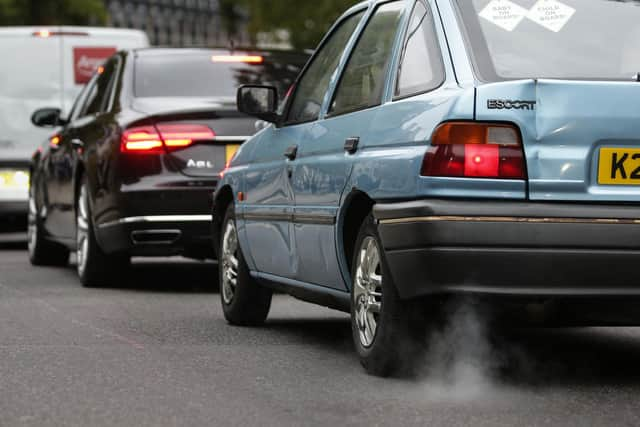Climate change: Is Scottish Government set to water down its 2030 emissions target? – Dr Richard Dixon
The Scottish Government has to produce a new plan on meeting climate change targets by November, but their scientific advisers have told them that Scotland’s 2030 target is now almost impossible to meet.
The 2019 Climate Act set three goals. By 2030, we were supposed to have reduced our emissions by 75 per cent compared to those in 1990. There is also a 2040 target and then of course the target of reaching net-zero emissions by 2045.
Advertisement
Hide AdAdvertisement
Hide AdWhen these targets were agreed with cross-party support four-and-a-half years ago, they were based not on what was easily achievable, but on what the world needed to stay below the temperature goals in the 2015 Paris Agreement. Delivering on these three targets would be Scotland’s fair share of keeping the world below a 2C temperature rise, with an attempt to stay close to only 1.5C.


Little progress on key sectors
Since the targets were set, the global climate emergency has accelerated. International climate scientists say that impacts are coming earlier and more strongly than previously predicted. In the 31 years between 1990 and 2021, Scotland’s total emissions fell by 50 per cent. The 2030 target means that emissions must be halved again by that year.
These targets were widely welcomed, and no doubt influenced other countries as they set their own and made pledges about climate action, but now the Scottish Government’s official advisor, the Climate Change Committee, has said that not enough has been done. There has been impressive progress in the electricity and waste sectors, but little progress in transport, now the largest sector for emissions, or in agriculture, industry or land use, so it’s now almost impossible to meet the 2030 target.
There are promising new policies for heat in buildings, and in transport. There was the opportunity in the new agriculture bill to make sure that the £600 million a year that the public purse gives to farmers could make a big dent in emissions from the sector, but the current proposals are that 70 per cent of the money will still be based on supporting production with only weak conditions relating to climate change.
A credible pathway
Some policies are also heading firmly in the wrong direction, such as considering building a new gas-fired power station at Peterhead, supporting wasteful hydrogen heating for homes, and chasing the myth of widespread carbon capture and storage. Meanwhile, the UK Government is determined to maximise oil and gas extraction from the North Sea and the SNP are failing to give clear messages on this, scared of losing votes in the North East.
The Scottish Government is considering its options. It could reduce the 2030 target. It could change the legal requirement for a new climate plan. It doesn’t have long if it wants to make changes to the law on climate targets, plans and reporting. Targets are important. They drive action. Plans are important. They show us if we are on a credible pathway to meet our targets. But the key thing now is action – to do everything we can to reduce emissions.
As an open letter to the First Minister from 63 civil society organisations said last week, “every part of the government must shift onto an emergency footing” and “redouble efforts to fairly reduce emissions”.
Dr Richard Dixon is an environmental campaigner and consultant
Comments
Want to join the conversation? Please or to comment on this article.
